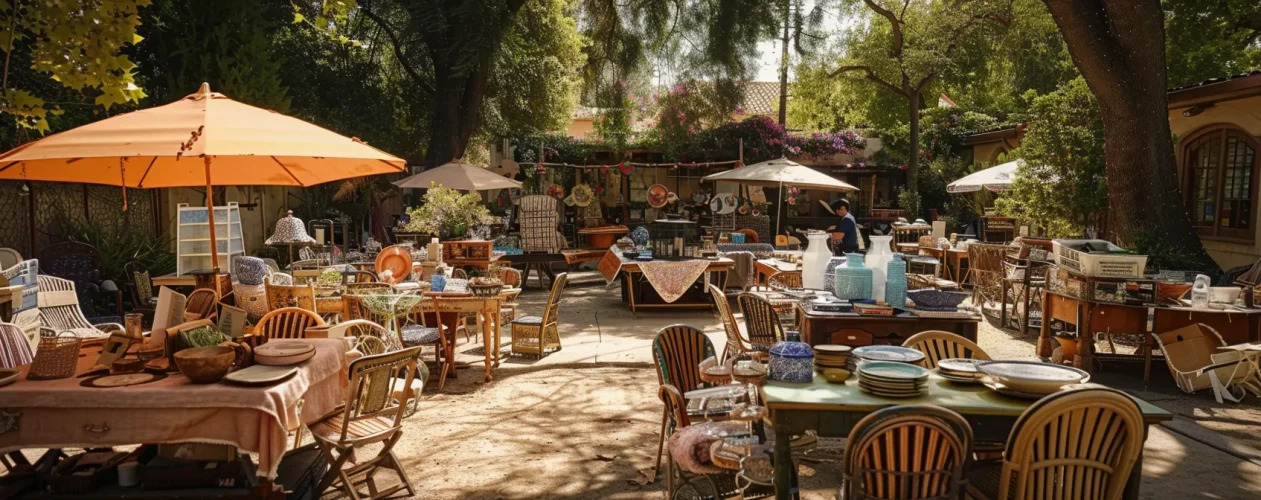
Have you ever wondered what stories and secrets lie behind the closed doors of Los Angeles homes? Estate sales, these treasure chests tucked within the city, offer more than just objects; they provide glimpses into the past. In this article, I’ll guide you through finding upcoming estate sales los angeles, planning your visit, and honing strategies to uncover those hidden gems. Whether it’s a family heirloom or a vintage piece, you’ll learn how to use online auctions and attend local sales, all while maintaining proper etiquette. Plus, we’ll touch on the essentials of payment, including when to have your credit card ready. Get ready to step into a world where every item has a history and could be your next prized possession.
Understanding Estate Sales in Los Angeles
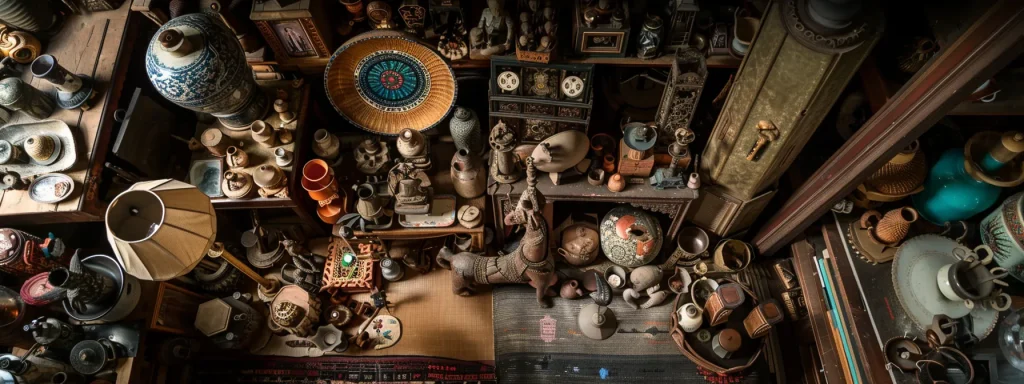
As I delve into the world of estate sales in Los Angeles, it’s essential to understand what makes these events unique in the sprawling city of Southern California. Known for their eclectic mix of items, estate sales here often reflect the diverse history and culture of California itself. From rare collectibles to daily household items, these sales serve various purposes, whether due to downsizing, relocation, or the passing of a loved one. By joining a mailing list, enthusiasts can stay informed about upcoming sales not just in Los Angeles, but also in surrounding areas like San Diego. In my exploration, I’ll provide insights on the common reasons for estate sales in the city, what sets them apart, and the types of treasures you might unearth.
What Sets Los Angeles Estate Sales Apart
Los Angeles estate sales stand out due to the distinct possibility of uncovering high-quality furniture with a story. As someone constantly seeking out these sales, I’ve noticed that the furniture often comes from homes where the decor reflects a blend of eras and design philosophies, from mid-century modern pieces to stately antiques. This diversity is a direct mirror of Los Angeles‘ rich tapestry of lifestyles and histories, offering buyers a unique chance not just to furnish a space but to add character and narrative to their homes.
The personal history encapsulated in each item, especially furniture, at a Los Angeles estate sale adds depth beyond mere acquisition. Guiding buyers through these sales, I emphasize the importance of knowing the background of pieces they’re interested in. Not only does this deepen appreciation, but it also ensures an informed purchase. The fusion of heritage, craftsmanship, and the eclectic nature of these items provides a sense of continuity and personal connection, which is especially valuable when curating one’s living environment.
Common Reasons for Estate Sales in the City
In Los Angeles, estate sales often occur when families are consolidating assets after a loved one has passed away. I’ve seen firsthand how these events bring communities together, as they not only offer a way to find unique items but also allow people to honor the memories and stories tied to the possessions of those who have departed. The emotional significance behind these sales can’t be overstated, as each piece sold carries with it the legacy of a person’s life and style.
Another prevalent reason for estate sales in our city is the frequent relocation of inhabitants, driven by the dynamic nature of the entertainment industry and the fluid property market. In my experience helping clients prepare for these sales, I’ve observed the necessity of streamlining belongings for a move. It’s not just about parting with items but finding them a new home where they will be valued just as much. Such sales are therefore essential for those looking to declutter as they transition to another stage in their life or career.
Types of Items Typically Found
In my journey through countless estate sales in Los Angeles, I’ve observed that the variety of items one can find is as vast as the city itself. You’re likely to come across vintage designer clothing that whispers tales of Hollywood’s golden era, to classic vinyl records that play the soundtrack of bygone days. Myriad treasures such as first-edition books, ornate jewelry, and unique art pieces often surface, making these sales a haven for collectors and enthusiasts seeking to discover history you can hold in your hands.
Working closely with estate sales, I also guide potential buyers towards practical finds that are staples in every home. High-quality kitchen appliances that have stood the test of time, solid wood furniture with craftsmanship that modern pieces rarely match, and even nearly new electronics found in these sales can provide exceptional value. By sharing my knowledge, I help individuals identify items that not only add aesthetic appeal but also serve as functional investments for their living spaces.
Finding Upcoming Estate Sales Near You
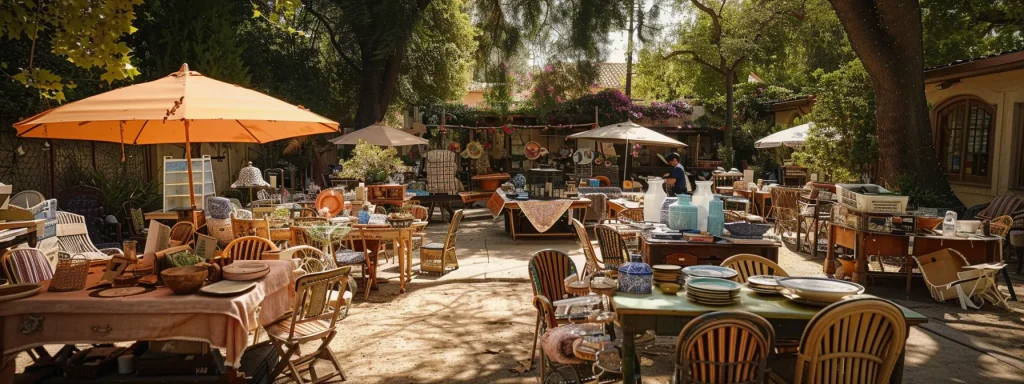
To pinpoint upcoming estate sales in Los Angeles and delve into a world of potential treasures, one can harness several effective strategies. I’ve come to rely on online directories specifically curated for estate sales as a primary resource. Seeking out local estate sale companies and following them closely has also proven invaluable. Subscribing to their email alerts and newsletters ensures that I’m always in the loop, while community bulletin boards often have postings that slip under the digital radar. In the sections that follow, I’ll share the insights I’ve gained on how to leverage these tools and discover sales that may offer exactly what you’re seeking.
Utilizing Online Estate Sale Directories
In my extensive experience of navigating estate sales, I’ve found that online directories are indispensable tools for uncovering upcoming events in Los Angeles. By routinely visiting websites that specialize in listing local estate sales, you can access a wealth of information, including dates, locations, and even preview photos of the items for sale. These platforms enable you to plan your visits effectively, ensuring you don’t miss out on the opportunity to discover hidden gems.
Another aspect of online directories that I’ve come to appreciate is their user-friendly nature, which allows you to search for sales based on specific criteria such as proximity, type of items, or even estate sale companies. Such precision in search functionality not only saves time but heightens your chances of finding exactly what you’re looking for. I recommend setting up alerts on these sites; this way, you’re sure to be one of the first to know when a new estate sale is announced, giving you a strategic advantage in your treasure hunt.
Following Local Estate Sale Companies
In my focused pursuit of estate sales in Los Angeles, I’ve learned that following local estate sale companies is a tactic that can’t be overlooked. These companies are experts in orchestrating sales, and by getting on their radar—through subscribing to newsletters or following them on social media—you receive updates that can lead you to remarkable finds. It’s like gaining an ally in the treasure-hunting game; they provide crucial alerts about upcoming sales that might otherwise slip past unnoticed.
Through my enduring relationships with some of these companies, I’ve garnered firsthand knowledge and tips which have proven to be priceless. They often share exclusive insights about the provenance of items and give priority access to their frequent attendees. This not only optimizes my treasure-hunt strategy but also enhances my ability to spot those once-in-a-lifetime deals, where the true value lies beyond the price tag.
Subscribing to Email Alerts and Newsletters
In my quest to uncover the most captivating estate sales in Los Angeles, I’ve found that subscribing to email alerts and newsletters is key. These subscriptions act as a direct line to the hottest sales, providing timely details and often exclusive previews that are not available elsewhere. It’s a simple yet effective method, and for anyone eager to plunge into the world of estate sales, it’s a step not to be skipped.
Through these personalized updates, I’ve discovered estate sales that I might have otherwise missed, ensuring that I’m always ahead of the curve in finding hidden treasures. While it may seem like a small action, subscribing can make a significant difference in securing access to sales with items that resonate with your personal style and collecting preferences.
Checking Community Bulletin Boards
In my thorough search for estate sales within Los Angeles, I’ve learned not to underestimate the value of community bulletin boards. Often found in local coffee shops, libraries, and neighborhood centers, these boards frequently feature postings for upcoming sales that may not be advertised online. It’s a tangible connection to the local community, and these postings can lead to some of the most intimate and unique estate sale experiences.
For sale seekers like myself, regularly checking these community hubs can uncover some less publicized, but no less exciting, estate sales. It’s always rewarding to spot that handwritten flyer that points to a sale just around the corner, as it might just reveal those hidden gems that haven’t been scoped out by the masses. These boards offer a grassroots approach to discovering sales, ensuring you stay tapped into the local scene to find true treasures that carry the spirit of Los Angeles.
Planning Your Visit to an Estate Sale
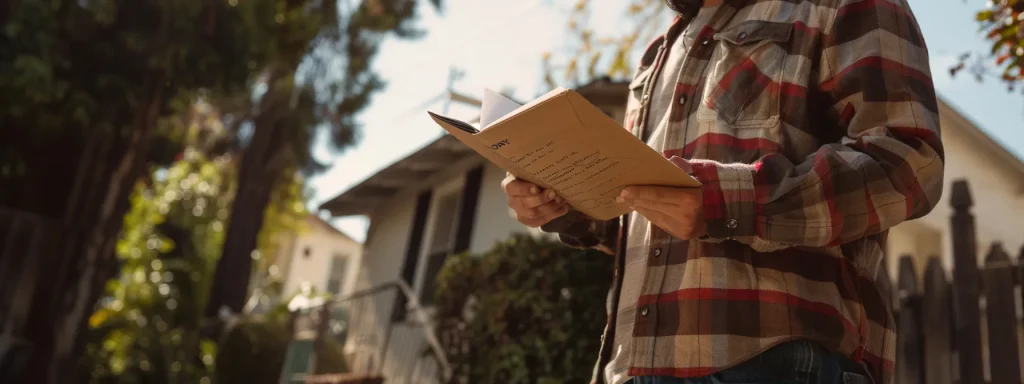
Preparing for an estate sale visit in Los Angeles requires strategy and forethought to make the most of the treasure-hunting experience. I advise creating a list of desired items, setting a budget, knowing the best times to attend, and preparing the necessary supplies. Each of these steps ensures a cohesive plan, allowing you to navigate the sales efficiently and with purpose. Stick around as I share practical advice on how to ready yourself for successful estate sale adventures, ensuring you come away with finds that are both meaningful and valuable.
Creating a List of Desired Items
Before setting foot in one of Los Angeles‘s many estate sales, I’ve learned that having a list of items you’re searching for is immensely helpful. This targeted approach not only streamlines the shopping experience but also helps to stay focused amidst the multitude of objects each sale presents. It aids in prioritizing what to look for, whether you’re hunting for vintage fashion, antique furniture, or rare collectibles, ensuring you don’t overlook a potential treasure sitting right in front of you.
Upon arriving at a sale, I take out my list, which is carefully crafted to match my or a client’s need for specific pieces that enhance our collections or living spaces. This list acts as a treasure map, guiding me through the labyrinth of artifacts and keepsakes. It’s a strategy I recommend adopting; it helps prevent impulse buys and supports making meaningful purchases that align with your tastes and the aesthetics of your home.
Setting a Budget for Purchases
When I prepare for an estate sale in Los Angeles, setting a clear budget is a crucial step that guarantees financial responsibility without compromising the enjoyment of the search. It’s about finding a balance between splurging on potential hidden treasures and staying within a pre-defined spending limit. I always assess beforehand the range of items I may encounter, and based on their market value and uniqueness, I allocate funds accordingly, ensuring I can bid confidently on pieces that truly captivate my interest.
In my experience, having a budget also anchors my decision-making process during the adrenaline-fueled moments of a sale. I’ve learned that it’s not just the price tag that dictates a purchase; the sustainability of the investment holds significant weight. So, I approach each potential acquisition with the question, does this item justify its cost within my budget? This discipline has often led to more meaningful acquisitions that resonate with my personal collection or benefit my living space, rather than impulse buys that later lead to buyer’s remorse.
Knowing the Best Times to Attend
Timing is essential when attending estate sales in Los Angeles, a fact I’ve learned through years of fruitful treasure hunting. It’s often best to arrive early on the first day to have the first pick of unique items, especially if you’re searching for one-of-a-kind treasures or highly sought-after collectibles. Yet, I’ve also found that visiting later can yield its own rewards, such as reduced prices and a more relaxed browsing experience, once the initial rush has subsided.
In my experience, it’s prudent to note that some estate sales may offer preview days or VIP hours for a more exclusive experience, although these might require advance registration or fees. As an avid attendee, I make it a point to track sales offering these opportunities to gain the upper hand, especially for sales expected to feature high-value items. Keeping tabs on the specific hours set by each sale — and planning accordingly — has allowed me to optimize both the quantity and quality of my finds.
Preparing Necessary Supplies
Preparing for an estate sale requires thoughtful consideration of the supplies you’ll carry. From my own experiences, a tape measure is indispensable for checking if furniture will fit your space, and a flashlight can reveal the true condition of each item, particularly in poorly lit areas. Having these tools at hand helps me make informed decisions quickly, which is vital in the fast-paced environment of an estate sale.
Furthermore, bringing along reusable bags or small boxes can be a game-changer when I come across smaller treasures. I always make sure to pack these, as many estate sales in Los Angeles don’t provide containers for your purchases. This foresight saves time and protects fragile items while transporting them from the sale to their new home, ensuring my finds are as secure as possible during transit.
Strategies for Discovering Hidden Treasures
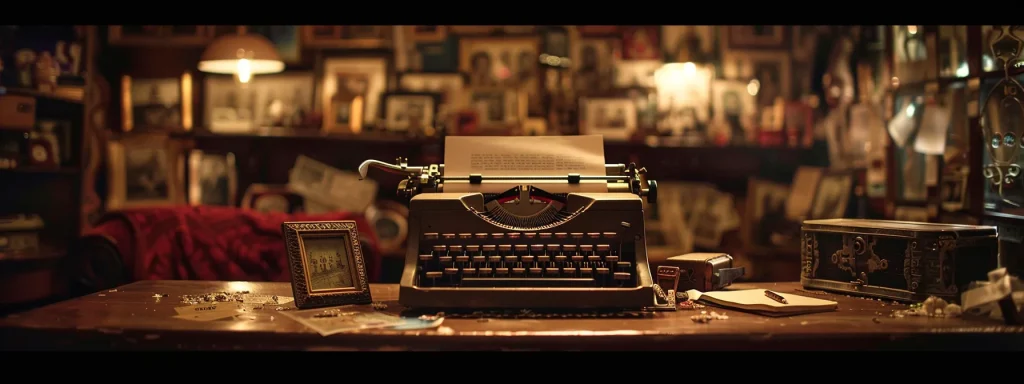
In my pursuit of hidden treasures at Los Angeles estate sales, I’ve honed strategies crucial for any astute hunter. Rigorous inspection of items ensures quality finds, while recognizing valuable antiques and collectibles can turn a casual purchase into an investment. I always inquire about the histories behind each piece, adding context and authenticity. And mastering negotiation not only secures a fair price but also respects the value of the items and the sale itself. Follow my lead, and these strategies could reward you with remarkable discoveries.
Inspecting Items Thoroughly
During my ventures through numerous estate sales in Los Angeles, I’ve learned that inspecting items thoroughly is imperative for ensuring quality. By carefully examining each piece for signs of wear and authenticity, I can discern true value from what merely glitters. As a practiced buyer, I often look beyond surface scratches or minor damage to recognize well-crafted pieces that possess lasting durability and character.
I cannot overstate the significance of a meticulous inspection process. It’s not uncommon for me to discover items that have been overlooked by others simply because I took the time to investigate the condition and workmanship more closely. This attention to detail has often led me to excellent finds, securing pieces that not only enrich my collection but also serve as wise investments with the potential to appreciate in value over time.
Recognizing Valuable Antiques and Collectibles
In my excursions through Los Angeles estate sales, I’ve learned to recognize valuable antiques and collectibles by researching hallmarks, makers’ marks, and authenticity cues. One must discern the era and origin of an item, considering its condition, rarity, and historical significance. A well-preserved signature piece from a notable period can be as valuable as it is enchanting, appealing to both collectors and those seeking a touch of antiquity for their homes.
Moreover, I often witness firsthand how knowledge of current market trends can elevate one’s ability to spot lucrative items. Understanding which collectibles are in demand allows me to judiciously select pieces that promise a sound return on investment. For anyone immersed in the vibrant estate sale scene of Los Angeles, grasping the subtleties of value in antiques and collectibles is a skill that reaps tangible rewards.
Asking Questions About Item Histories
In my experience attending estate sales in Los Angeles, asking questions about the histories of items has proven to be a vital strategy. It’s not merely about the physical object; the story behind a piece can drastically enhance its value and significance, making it a cornerstone of a thoughtfully curated collection. Therefore, I always engage with the sellers to unearth the narrative of the items, ensuring that I grasp the full picture and invest in pieces with rich provenance.
I’ve found that direct inquiries about the background of items not only inform but also contribute to the emotional connection one feels toward a piece. For collectors and enthusiasts in Los Angeles, understanding an item’s journey from its creation to its place in the estate sale can be just as thrilling as the purchase itself. Therefore, I make it a priority to delve deeper, allowing the layered history to guide my selection and add dimension to the treasures I bring into my life.
Negotiating Prices Effectively
At estate sales in Los Angeles, I’ve learned that effective negotiation is key to acquiring treasures at an equitable price. To succeed, I initiate dialogues on a respectful note, expressing genuine interest in the items while being prepared with knowledge about their worth. This approach not only fosters positive interactions but also sets the stage for mutually beneficial agreements, allowing me to add valuable finds to my collection without straining my budget.
My approach to negotiating is always to be courteous and considerate, recognizing that each item holds a personal history and value. By communicating my valuation and how I plan to cherish the item, I often find sellers more open to adjusting their price. It’s a delicate balance, but with a clear understanding of market value and a genuine demeanor, I’m able to secure deals that honor both the seller’s expectations and my own financial constraints.
Etiquette and Best Practices at Estate Sales
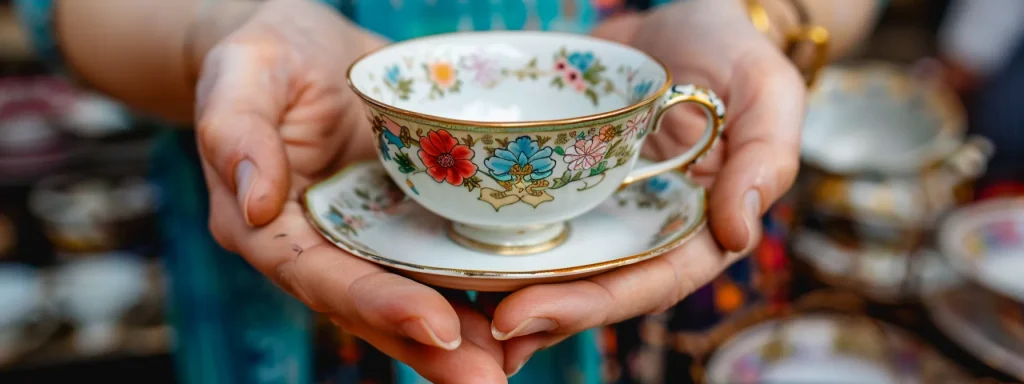
As a dedicated seeker of hidden gems at Los Angeles‘s estate sales, I’ve come to understand the importance of observing proper etiquette and best practices. These actions respect the property and items for sale, ensure you’re abiding by the rules set forth by the hosts, and allow for polite interactions with both the hosts and fellow shoppers. Handling items with care is also crucial, as it shows reverence for the histories and memories they embody. Together, these practices contribute significantly to the success and enjoyment of your treasure-hunting experience.
Respecting the Property and Items
When I’m exploring estate sales in Los Angeles, I am always mindful to respect the property and the items for sale. This involves treating each object as if it were my own, understanding that every piece has its own story and significance. As visitors, it’s our responsibility to handle items with care, ensuring that they remain intact for potential buyers who may treasure them as much as the last owner did.
In practice, this means being attentive to the boundaries set by the estate sale hosts, such as not entering private areas that are off-limits and using provided walkways and entrances. Respecting the property extends to where and how I park my vehicle, always making sure that it’s not obstructing neighbors’ driveways or the flow of traffic. This careful consideration sets a professional tone for the sale and contributes to a respectful atmosphere for all attendees.
Understanding the Rules of the Sale
Abiding by the rules at estate sales in Los Angeles is fundamental to a harmonious experience. These sales often have a set of guidelines provided by the host or estate sale company for everything from the handling of items to potential bidding procedures. I make it a point to acquaint myself with these guidelines as soon as I arrive, ensuring that my actions reflect both respect for the estate and consideration for fellow attendees.
Moreover, understanding the particularities of purchase agreements, such as items sold as-is or return policies, can prevent any post-sale misunderstandings. In my role as a guide for others in these sales, I emphasize the importance of clarifying any uncertainties before making a commitment. This not only smoothes the process for everyone involved but also fosters trust and transparency, creating a more enjoyable estate sale adventure.
Interacting Politely With Hosts and Other Shoppers
My experiences at estate sales in Los Angeles have taught me the importance of polite interactions with hosts and other shoppers. Engaging respectfully not only enhances your reputation within the estate sale community but also fosters an atmosphere of friendliness that can make your treasure hunt even more rewarding. I’ve found that a simple gesture of kindness or a smile can go a long way and sometimes leads to tips from hosts or fellow buyers about items that might otherwise have gone unnoticed.
Moreover, navigating the bustling scene of an estate sale with courtesy ensures a pleasant experience for all involved. Whether inquiring about an item’s price or discussing its history, I always approach hosts with interest and appreciation for their expertise. Similarly, I consciously give other shoppers space as they browse and avoid any behavior that could be seen as confrontational. This approach not only reflects my professional standards but also creates a sense of camaraderie among like-minded treasure seekers.
Handling Items With Care
During my visits to estate sales in Los Angeles, I prioritize handling each item with the utmost care. This approach not only demonstrates respect for the former owner’s belongings but also preserves the integrity of the items for future owners. I am mindful to carefully inspect and handle goods, whether it’s a fragile porcelain figurine or a piece of vintage furniture, ensuring that they remain in the best condition for evaluation and purchase.
I’ve witnessed the disappointment of both hosts and buyers when an item is accidentally damaged due to careless handling. It’s a scenario I am keen to avoid. By using a gentle touch and asking for assistance when necessary, especially with heavier objects, I maintain a professional demeanor and ensure that the treasures of an estate sale are available for all attendees to enjoy and potentially make their own.
Continuing Your Treasure Hunting Journey
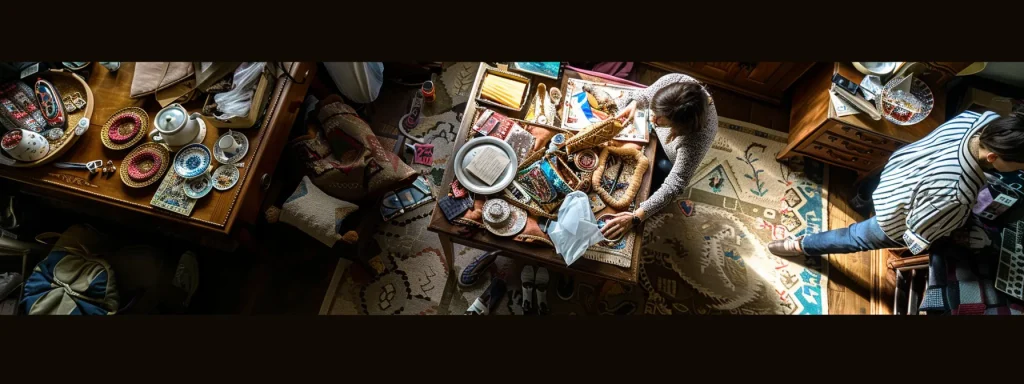
Advancing in the hunt for Los Angeles‘s estate sale treasures involves more than just showing up; it’s about cultivating relationships, diversifying your search, and weaving into the community tapestry. I’ll guide you through building connections with estate sale organizers, venturing into auctions and other events, sharing your discoveries, and staying alert to future opportunities. Let’s propel your journey further, deepening your engagement and enhancing your treasure trove with every sale you attend.
Building Relationships With Estate Sale Organizers
In nurturing connections with estate sale organizers in Los Angeles, I’ve found that it lends a personal touch to my treasure-hunting endeavors. By regularly attending their events and engaging in conversations, I’ve been able to establish relationships that often lead to insider information on the best items and upcoming sales. This rapport not only keeps me informed but also opens doors to preferential treatment, such as early entry passes or private viewings, which can be invaluable in finding hidden treasures.
I’ve also learned that providing feedback and showing appreciation for well-curated sales strengthens the bond with organizers. Expressing interest in the stories behind items and the efforts put into organizing the sales paves the way for a trusted connection. These relationships, cultivated with genuine interest, have often led to estate sale organizers personally reaching out to me with details about future sales featuring items that align with my specific interests.
Exploring Estate Auctions and Other Sales Events
Branching out into estate auctions and other sales events in Los Angeles has provided me with unique opportunities to enhance my collection of treasures. These auctions, often held by professional companies or through online platforms, can be a treasure trove of rare and valuable items not commonly found at traditional estate sales. From antique furniture pieces with a rich history to vintage jewelry that tells its own story, each auction presents a new adventure and a chance to procure singular finds.
I’ve discovered that attending other sales events, such as flea markets and antique fairs in the Los Angeles area, can complement the estate sale experience. Such events usually gather a variety of vendors, offering a wider array of items and the potential for negotiating deals on the spot. In pursuing these avenues, I’ve broadened my scope and deepened my understanding of the marketplace, leading to rewarding acquisitions that reflect the diverse cultural heritage of Southern California.
Sharing Your Finds With the Community
As I become more seasoned in navigating estate sales in Los Angeles, I’ve learned the joy of sharing my finds with the broader community. Showcasing these unique items not only ignites conversations with fellow enthusiasts but also strengthens my connections within this niche network. It’s a gratifying feeling to share a piece that carries a history, knowing it may inspire or captivate someone else in the way it did me.
Additionally, sharing my discoveries on social media platforms and local online forums has proved invaluable. In doing so, I provide insights into the types of treasures that can be unearthed at Los Angeles estate sales, guiding newcomers and aiding seasoned collectors in their quest. This exchange of knowledge and finds enriches the community’s collective experience, making the hunt for hidden gems an even more collaborative and rewarding pursuit.
Staying Informed About Future Sales
Keeping abreast of upcoming estate sales in Los Angeles is critical for any diligent treasure hunter. I personally subscribe to a variety of newsletters from reputable estate sale companies and regularly check event calendars on local auction house websites. This proactive approach ensures that I never miss an opportunity to attend a sale that could have that one-of-a-kind item I’ve been searching for.
Moreover, networking with fellow estate sale enthusiasts and professionals has opened up a channel of information exchange that’s invaluable. I’ve often received tips about private sales or heard chatter about an estate with collections that match my interest, serving as a reminder of how community knowledge can be a powerful tool in staying informed and ahead in the treasure hunting game.
Frequently Asked Questions
What exactly are estate sales in Los Angeles?
Estate sales in Los Angeles are public auctions where the contents of a home are sold, often due to downsizing, moving, or after a homeowner has passed away.
How can I find local estate sales happening soon?
To find local estate sales, check community bulletin boards, search online platforms like EstateSales.net, subscribe to local auction houses’ mailing lists, and follow estate sale companies on social media for updates.
What should I do before attending an estate sale?
Before attending an estate sale, research the items you’re interested in, plan your budget, and arrive early to secure your place in line.
Do you have tips for finding valuable items at estate sales?
Certainly! To score treasures at estate sales, arrive early for the best selection, research items beforehand to recognize value, and inspect for authenticity or damage to ensure you’re making a wise purchase.
What are the do’s and don’ts while at an estate sale?
At estate sales, do respect the property, be punctual, and bring cash; don’t haggle rudely, hoard items, or ignore sale policies.
In Los Angeles, estate sales offer a unique opportunity to acquire one-of-a-kind treasures, be it vintage collectibles, high-quality furniture, or rare artifacts that echo the city's fascinating cultural landscape. The importance of thorough preparation cannot be overstated; having a strategy, from subscribing to alerts to understanding the best times to attend, is key to making the most of these events. By building relationships with sale organizers and expanding your search to include auctions and fairs, you'll deepen your engagement with the community and enhance your chance of discovering valuable items. Ultimately, your journey through Los Angeles's estate sales is not only about the treasures you find but also the stories and connections you forge along the way.